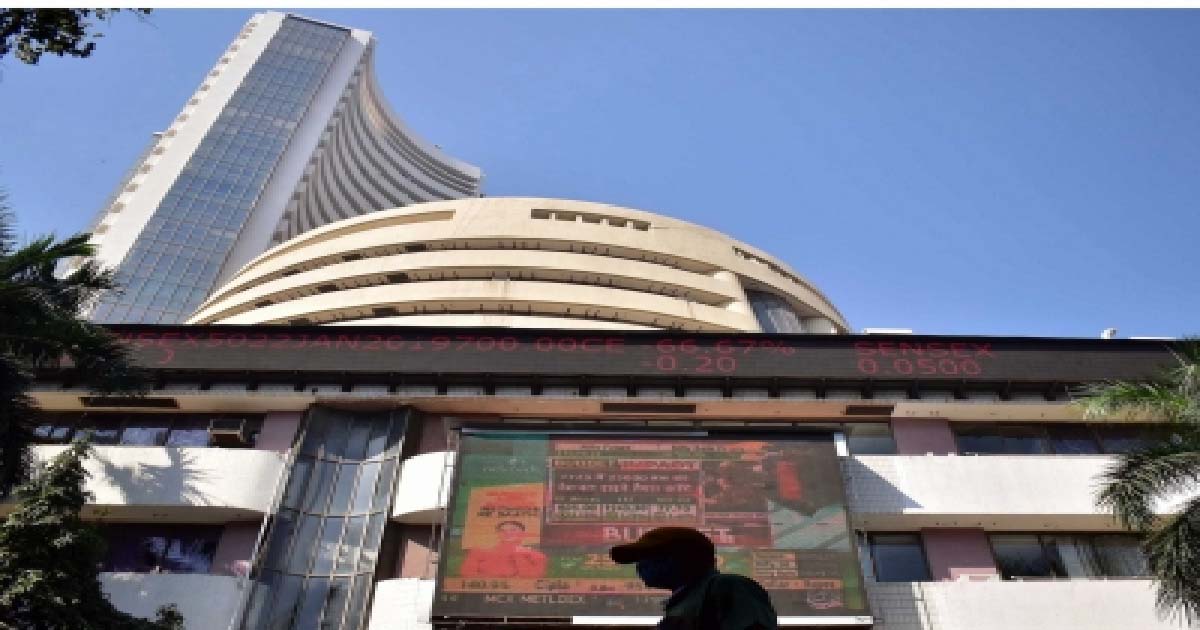Business
Paytm FY22 results: Revenue jumps 77% to Rs 4,974 cr, losses reduce 8% to Rs 1,518 cr

One97 Communications Limited (OCL) that owns the brand Paytm, Indias leading mobile payments and financial services company, announced its quarter-ending March 2022 and full financial year FY22 results. The company saw its revenue jump by 77 per cent in FY22 to Rs 4,974 crore from Rs 2,802 crore the previous year.
In Q4 alone, the company’s revenue grew 89% on a year-on-year basis to Rs 1,541 crore, while EBITDA (before ESOPs) for the quarter improved 12 per cent year-on-year.
The growth in revenue was led by the increase in consumer and merchant payments and disbursements of loans through its partners on Paytm.
The company’s EBITDA loss (before ESOP) for FY22 saw an improvement of 8 per cent year-on-year to Rs 1,518 crore from Rs 1,655 crore the previous year. In addition, the company had Rs 809 crore of non-cash ESOP expenses.
Paytm has reduced EBITDA (before ESOP cost) loss despite making investments in user growth, merchant device deployment and technology. The company’s cost structures in Q4 FY 2022 are largely sufficient to support its growth plans in FY 2023. As a result, the company believes it will show accelerated reduction in EBITDA losses and is well on track to achieve profitability (before ESOP) by September 2023 quarter.
Paytm has a strong two-sided ecosystem of consumers and merchants, where it is seeing the monetization strategy kick in to yield results. On the consumer payments side, the company is recording increasing usage of the Paytm app and Paytm Payment instruments. On the merchant payments side, the company serves the entire base of merchants through (i) QR for payments (typically free), (ii) soundboxes (which generate subscription revenues), (iii) card machines (which generate subscription and MDR revenues), and (iv) Payment Gateway for online merchants (which generates MDR revenues and platform fees). Leveraging this distribution and rich insights, Paytm offers financial products to its consumers and merchants, in partnership with financial institutions.
Increased consumer engagement and merchant base leads to higher revenue from Payment services. The company has recorded a jump in its average monthly transacting users in FY22 to 60.8 million, the average for the last quarter further increased to 70.9 million. Paytm’s merchant base has also grown to now have 26.7 million merchant partners, with 2.9 million devices deployed as of FY22.
The increased consumer engagement and merchant base has also led to increased revenue from Payment Services (both to consumers and merchants). Paytm’s Revenue from Payment Services to Consumers was up 58 per cent to Rs 1,529 crore in FY 2022 from Rs 969 Cr for the FY 2021. For the full year, Revenue from Payment Services to Merchants was up 87 per cent to Rs 1,892 crore in FY 2022 from Rs 1,012 crore for FY 2021.
One of the highlights of Q4FY22 and FY22 has been the rapid scale-up of Paytm’s loan disbursement business, where it offers Paytm Postpaid (Buy Now, Pay Later), personal loans and merchant loans. In April 2022, the company reached an annualised run rate of approximately Rs 20,000 crore of disbursement through its platform.
For the full year, the number of loans disbursed through the Paytm platform has grown 478 per cent year-on-year to 15.2 million in FY 2022 from 2.6 million in FY 2021. The value of loans disbursed has grown 441 per cent year-on-year from Rs 1,409 crore in FY 2021 to Rs 7,623 crore in FY 2022.
The number of Postpaid Loans disbursed grew 373 per cent year-on-year in Q4 FY 2022, while the value of Postpaid Loans grew 425 per cent year-on-year, thus highlighting increased usage by customers.
Personal Loans disbursed through partners on Paytm grew 948 per cent year-on-year in Q4 FY 2022, while the value of Personal Loans grew 1,082 per cent year-on-year. The number of Merchant Loans disbursed grew 123 per cent year-on-year in Q4 FY 2022, while the value of Merchant Loans grew 178 per cent year-on-year. The average ticket size has also increased in FY22, with personal loans ranging from Rs 85,000 to Rs 95,000 and merchant loans ranging from Rs 1,30,000 to Rs 1,50,000.
Business
Centre to launch third round of PLI scheme for specialty steel

New Delhi, Nov 4: The government was set to launch the third round of the production-linked incentive (PLI) scheme for Specialty Steel on Tuesday, which is one of the key initiatives under the Atmanirbhar Bharat vision.
The PLI 1.2 launch will be presided over by Union Minister H.D. Kumaraswamy, in the presence of senior officials, and other stakeholders from the sector, according to Ministry of Steel.
The ministry said that the PLI Scheme for Specialty Steel, approved by the Union Cabinet in July 2021 with an overall outlay of Rs 6,322 crore, aims to transform India into a global hub for production of high-value and advanced steel grades.
The PLI scheme has attracted a committed investment of Rs 43,874 crore so far, with Rs 22,973 crore already invested and over 13,000 jobs created under the first two rounds.
The scheme covers 22 product sub-categories including super alloys, CRGO, alloy forgings, stainless steel (long and flat), titanium alloys, and coated steels.
Incentive rates range from 4 per cent to 15 per cent, applicable for five years starting FY 2025–26, with disbursal beginning in FY 2026–27.
The base year for pricing has also been updated to FY 2024–25 to better reflect current trends.
The PLI scheme incentivises incremental production and investment in identified product categories, thereby enhancing value addition within the country and reducing import dependence in critical sectors such as defence, power, aerospace and infrastructure.
Meanwhile, the country aims to achieve 300 million tonnes of crude steel production capacity by 2030. Notably, India’s domestic steel demand is growing at an impressive 11-13 per cent, fuelled by large-scale infrastructure projects, while global demand faces a slowdown, according to Steel Ministry.
Steel production surged by a robust 14.1 per cent in September compared to the same month of the previous year on the back of increased demand from big-ticket infrastructure projects being carried out by the government.
Business
Indian stock markets end higher after two days of losses

Mumbai, Nov 3: Indian equity markets ended a volatile session on a positive note on Monday, snapping a two-day losing streak.
Gains in real estate and state-owned bank stocks helped lift the indices despite early weakness.
After opening lower, the Sensex recovered to touch an intra-day high of 84,127 before closing 39.78 points, or 0.05 per cent, higher at 83,978.49.
The Nifty also gained 41.25 points, or 0.16 per cent, to end at 25,763.35.
“The Nifty oscillated between 25,700 and 25,800 through the day, showing resilience after briefly dipping below the October 24 low of 25,718,” analysts said.
“The zone between 25,660–25,700 once again acted as a strong demand pocket, helping the index recover intraday losses and maintain a constructive tone ahead of key global data releases,” they added.
Among the Sensex stocks, Maruti Suzuki fell over 3 per cent and was among the top losers along with Titan Company, BEL, TCS, ITC, NTPC, Bajaj Finserv, Tata Steel and tech Mahindra.
On the other hand, Mahindra & Mahindra, State Bank of India, Tata Motors Passenger Vehicles, and HCL Tech were the major gainers.
In the broader markets, the Nifty MidCap index rose 0.77 per cent, while the Nifty SmallCap index advanced 0.72 per cent, showing strength beyond the frontline stocks.
Among sectoral indices, PSU bank shares led the rally, with the Nifty PSU Bank index climbing 1.92 per cent.
Bank of Baroda surged 5 per cent, while Canara Bank, Bank of Maharashtra, Bank of India, and Indian Bank also gained.
The Nifty Metal and Realty indices also added up to 2 per cent each.
Meanwhile, the FMCG, Private Bank, and IT indices slipped up to 0.4 per cent, capping the market’s overall gains.
Analysts said that despite mixed global cues and cautious investor sentiment, buying in select sectors helped the markets end the day in the green.
“The domestic market ended on a marginal positive note as profit booking was visible at the higher levels due to the absence of fresh domestic triggers,” market watchers said.
“While the broader market outperformed since the quarterly earnings are steering investors’ preference to take a short- to medium-term view,” they mentioned.
Business
India’s manufacturing growth picks up in Oct due to robust domestic demand: PMI data

New Delhi, Nov 3: India’s manufacturing sector growth surged in the month of October, fuelled by strong domestic demand, GST 2.0 reforms, productivity gains and increased technology investments, a report said on Monday.
The HSBC India Manufacturing Purchasing Managers’ Index (PMI) rose to 59.2 in October from 57.7 in September, according to data compiled by US-based financial intelligence provider S&P Global.
The increase stemmed from quicker growth in new orders and factory output at the beginning of the third financial quarter, driven by boost in advertising and recent GST reforms, the report said.
The expansion rate matched levels seen in August, which was one of the strongest in the last five years, it indicated.
A reading above 50 indicates economic expansion, while one below 50 shows contraction in the manufacturing, services, or construction sectors. A reading of exactly 50 signifies flat activity.
The manufacturing PMI acceleration comes from robust end-demand fuelled expansions in output, new orders, and job creation, said Pranjul Bhandari, chief India economist at HSBC.
Meanwhile, input prices moderated in October while average selling prices increased as some manufacturers passed on additional cost burdens to end-consumers, Bhandari added.
Despite input cost inflation easing to an eight-month low, output charge inflation remained at its highest level in 12 years for the second consecutive month.
Companies reported passing on higher freight and labour costs to customers, while strong demand allowed them to maintain elevated prices.
Domestic sales growth outpaced export orders, which grew more slowly even with some improvement in overseas demand. Employment creation continued for the twentieth straight month in October, with hiring remaining moderate and largely consistent with September’s levels, it noted.
Manufacturers remain optimistic about future business conditions, crediting their optimism to GST reforms, capacity expansion, and stronger marketing efforts, the report noted.
-

 Crime3 years ago
Crime3 years agoClass 10 student jumps to death in Jaipur
-

 Maharashtra1 year ago
Maharashtra1 year agoMumbai Local Train Update: Central Railway’s New Timetable Comes Into Effect; Check Full List Of Revised Timings & Stations
-

 Maharashtra1 year ago
Maharashtra1 year agoMumbai To Go Toll-Free Tonight! Maharashtra Govt Announces Complete Toll Waiver For Light Motor Vehicles At All 5 Entry Points Of City
-

 Maharashtra1 year ago
Maharashtra1 year agoFalse photo of Imtiaz Jaleel’s rally, exposing the fooling conspiracy
-

 National News1 year ago
National News1 year agoMinistry of Railways rolls out Special Drive 4.0 with focus on digitisation, cleanliness, inclusiveness and grievance redressal
-

 Maharashtra12 months ago
Maharashtra12 months agoMaharashtra Elections 2024: Mumbai Metro & BEST Services Extended Till Midnight On Voting Day
-

 National News1 year ago
National News1 year agoJ&K: 4 Jawans Killed, 28 Injured After Bus Carrying BSF Personnel For Poll Duty Falls Into Gorge In Budgam; Terrifying Visuals Surface
-

 Crime1 year ago
Crime1 year agoBaba Siddique Murder: Mumbai Police Unable To Get Lawrence Bishnoi Custody Due To Home Ministry Order, Says Report


















